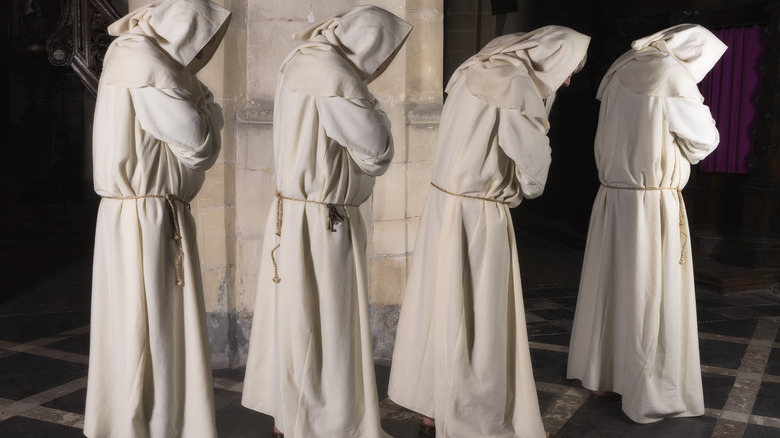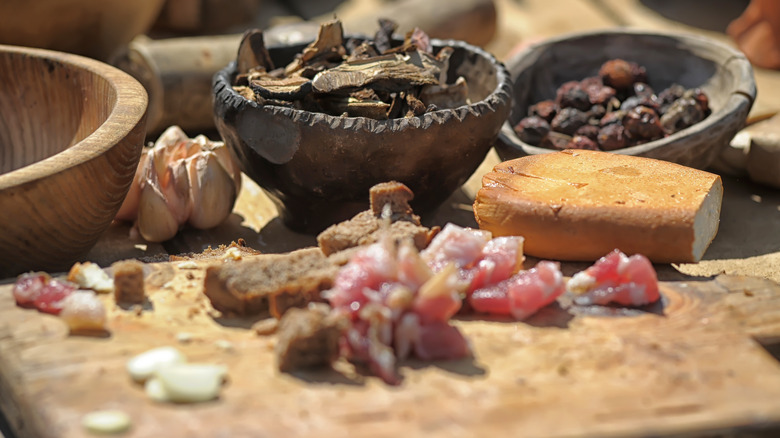Here's What Happened When 14th Century Monks Started Eating Meat
For decades now, many medical experts have warned against the overconsumption of meat, particularly red meat (via The New York Times). While humans have been eating meat for centuries now, it's widely known that meat has its pros and cons on the human body (per My Balance Meals). Aside from dietary preferences, there are also cultures and religions that determine just how much meat one eats, including the type of meat and when they can eat it. Humanity's relationship with meat has definitely shifted over the years, but sometimes the choice to eat it is strictly down to potential health reasons.
King Henry VIII was known for being a huge meat eater (via Historic Royal Place). Before him, however, some of his earlier compatriots were quite the opposite. Medieval monks ate so little meat that when they decided to introduce it into their diets, they paid for it big time.
During the 14th century, monks at the Muchelney Abbey in Somerset, England, had a diet that mostly consisted of bread, alcohol, and eel, according to The Guardian. They were not allowed to eat meat.
New law, new diet
But then an amendment to a papal law came in 1336 and that all changed. The new law authorized the consumption of meat from deer, sheep, pigs, and cows. Shortly after, the monks began consuming meat two times a week; the most that they were authorized to. Despite just two days of meat, this new major shift highlighted another problem.
Per The Guardian, researchers have learned that the change had a huge effect on the bathroom habits of the monks. The addition of meat to their usual diets, which was already lacking in key nutrients, took its toll on their digestive system. Unfortunately, the monks were literally pooping themselves. "Basically monks were slaves to their bowels. They often had serious health problems because of their diet and digestion," said historian Michael Carter.
Monks either had to seriously go to the bathroom, or couldn't at all. As a result, this led to the need for more places to relieve themselves of waste. And this was determined by the discovery of medieval restrooms.
It's nearly a fact that a non-meat eater eating meat can send their digestive system into shock, says More. The same goes for someone who might've given up meat for a significant time and reintroduced it back into their body. The digestive system needs a slow and gradual introduction to not have a negative effect. Likely, this is information the monks didn't know at the time.

